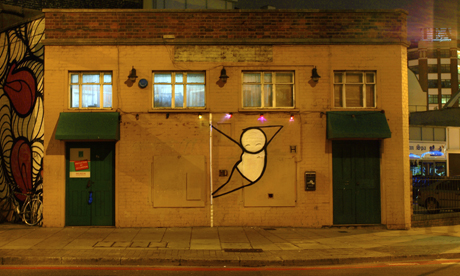London 2012 Olympics: Crackdown on brothels ‘puts sex workers at risk’

Scotland Yard has been accused of endangering sex workers after it emerged that officers were targeting brothels in London’s Olympic boroughs as part of a coordinated clean-up operation ahead of the 2012 games.
The Yard’s human exploitation and organised crime command (SCD9) was launched in April last year, bringing together expertise in the fields of clubs and vice, human trafficking and immigration crime. The command incorporates a team dedicated to tackling vice-related crime in the five Olympic host boroughs: Waltham Forest, Hackney, Tower Hamlets, Newham and Greenwich.
Figures recently released to parliament by the Home Office show SCD9 carried out 80 brothel raids between January to August 2010 in the five boroughs. There were a further 20 raids in Westminster and 13 in Camden – the two boroughs expected to play host to the majority of tourists who come to the capital for the games. In contrast, in the remaining 25 London boroughs, there were just 29 raids over the same period.
Similar vice crackdowns have taken place in other countries hosting major sporting events. The London initiative comes amid disputed claims that increased numbers of sex workers will try to work in the capital during the Olympics. But the probation union, Napo, claimed the crackdown would have unintended consequences.
“Attempts to remove sex workers from the Olympic boroughs will be only a partial success,” said Harry Fletcher, Napo’s assistant general secretary.
“The strategy will drive the trade underground and prohibition merely distorts the laws of supply and demand. As a consequence, the trade will be more dangerous for women. Policy initiatives should address real problems, such as housing, health and safety, and not be based on flawed ideology which distorts the market and endangers the women.”
Figures from the Open Door agency, a health clinic based in East London, appear to partially confirm Napo’s claim. The agency reported that there has already been a significant displacement of sex workers throughout Newham, with a decline of 25% in referrals to health clinics since the previous year.
Napo said it appeared the women had not stopped working, but were moving to other areas where they could be more at risk of rape, robbery and assault.
The decision by police to target brothels has been controversial. SCD9 specialises in helping people being held against their will or who have been trafficked to work in the sex industry. But critics say it is driven by a mistaken belief that this applies to many women in the brothels.
Two high-profile Metropolitan police operations, Pentameter 1 and 2, resulted in 1,337 premises being raided. This led to 232 arrests under Pentameter 1 and 528 under Pentameter 2. More than 250 women were removed and 37 took up services from support projects.
“Research shows no increase in trafficking of women during international sports events,” said a spokeswoman for the English Collective of Prostitutes. “Figures on the numbers of women trafficked into the UK have been exposed as false, yet they are still used as an excuse to hound sex workers. Prohibition has never done anything but drive sex workers underground and into more danger. Is the government prepared for further tragedies like Ipswich and Bradford?”
The Met said so far it had not seen any evidence of an increase in trafficking of sex workers in the five Olympic boroughs, but pledged that its officers would continue to try to assist victims and seek the prosecution of those responsible.
“We do not believe that tackling vice drives prostitution underground and have not seen evidence of this,” a spokesman said. “Brothels will always need to advertise, which assists us in developing our intelligence picture in this area.”
guardian.co.uk © Guardian News & Media Limited 2010
Published via the Guardian News Feed plugin for WordPress.

This article is a joke. “police crackdown on brothels pushing human trafficking underground”. What! Should human trafficking be legal so that “sex workers” wont be “at risk” ? joker. I think the press should be praising hard police work that make it difficult for Demand and Offer to meet, rather than find “out-of-the-box” angles as a pretense for good journalism.
It is unfortunate that the crack down is just for the sake of tourists and “making a good impression” rather than to protect vulnerable woman in the first place.
Prostitution is not a career choice that any woman with options would make. There may well be supply and demand, but how many woman are forced to do this because of circumstance beyond their control?
A passive opinion of “its there, accept it” will never achieve anything positive and it doesn’t make a wrong, right. The woman are at risk all the time, of sexually transmitted diseases, abuse, increased rates of mental illness.
Societies choosing to focus on the 0.001% of sex workers who may have some element of “choice” doesn’t help the vulnerable massive majority.
Whether to make us look good for the olympics, or because the police actually care about these women, at least they are doing something to stop an abuse that has been socially accepted for as long as men have ruled society!
@Lisa: much as I find the concept of prostitution odious myself, I imagine that the GMB (as the main union representing sex workers) would almost certainly take issue with your figure of 0.001%, which you appear to have pulled out of thin air; nor does your unnecessary misandrist parting shot do anything to lend credibility to your post. Must try harder!